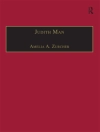Johann Wolfgang von Goethe’s Faust is a tragic play in two parts: Faust. Der Tragödie erster Teil translated as: Faust: The First Part of the Tragedy) and Faust. Der Tragödie zweiter Teil (Faust: The Second Part of the Tragedy).
Although rarely staged in its entirety, it is the play with the largest audience numbers on German-language stages. Faust is Goethe’s most famous work and considered by many to be one of the greatest works of German literature.
The principal characters of Faust Part One include:
Heinrich Faust, a scholar, sometimes said to be based on the real life of Johann Georg Faust, or on Jacob Bidermann’s dramatized account of the Legend of the Doctor of Paris, Cenodoxus
Mephistopheles, a Devil (Demon)
Gretchen, Faust’s love (short for Margaret; Goethe uses both forms)
Marthe, Gretchen’s neighbour
Valentin, Gretchen’s brother
Wagner, Faust’s famulus
Faust Part One takes place in multiple settings, the first of which is heaven. Mephistopheles makes a bet with God: he says that he can lure God’s favourite human being (Faust), who is striving to learn everything that can be known, away from righteous pursuits. The next scene takes place in Faust’s study where Faust, despairing at the vanity of scientific, humanitarian and religious learning, turns to magic for the showering of infinite knowledge.
He suspects, however, that his attempts are failing. Frustrated, he ponders suicide, but rejects it as he hears the echo of nearby Easter celebrations begin. He goes for a walk with his assistant Wagner and is followed home by a stray poodle (the term then meant a medium-to-big-size dog, similar to a sheep dog).
In Faust’s study, the poodle transforms into the devil (Mephistopheles). Faust makes an arrangement with the devil:
the devil will do everything that Faust wants while he is here on Earth, and in exchange Faust will serve the devil in Hell. Faust’s arrangement is that if he is pleased enough with anything the devil gives him that he wants to stay in that moment forever, then he will die in that moment.
When the devil tells Faust to sign the pact with blood, Faust complains that the devil does not trust Faust’s word of honor.
In the end, Mephistopheles wins the argument and Faust signs the contract with a drop of his own blood. Faust has a few excursions and then meets Margaret (also known as Gretchen). He is attracted to her and with jewellery and help from a neighbor, Martha, the devil draws Gretchen into Faust’s arms. With influence from the devil, Faust seduces Gretchen. Gretchen’s mother dies from a sleeping potion, administered by Gretchen to obtain privacy so that Faust could visit her. Gretchen discovers she is pregnant. Gretchen’s brother condemns Faust, challenges him and falls dead at the hands of Faust and Mephistopheles.
Gretchen drowns her illegitimate child and is convicted of the murder. Faust tries to save Gretchen from death by attempting to free her from prison. Finding that she refuses to escape, Faust and the devil flee the dungeon, while voices from Heaven announce that Gretchen shall be saved – ‘Sie ist gerettet’ – this differs from the harsher ending of Urfaust – ‘Sie ist gerichtet!’ – ‘she is condemned.’
It was reported that members of the first-night audience familiar with the original Urfaust version cheered on hearing the amendment.












